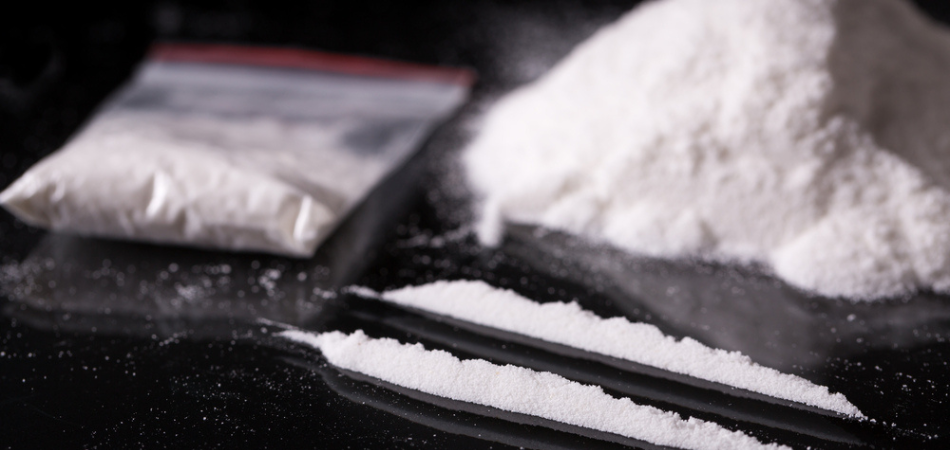Cocaine Addiction | Signs, Symptoms & Effects
- Cocaine addiction
- Cocaine addiction
- Cocaine addiction treatment
When people think about cocaine, they might regard it as a party drug which is taken largely in social settings. However, many people underestimate how dangerous cocaine is and how prevalent cocaine addiction can be.
A UN report from 2020 found that cocaine had 21.5 million users worldwide. If you are struggling with cocaine addiction, know that you are not alone and there is support available.
- Page Content
- What Is cocaine addiction?
- How does cocaine addiction develop?
- What are the long-term effects of cocaine addiction?
- How do I know whether a loved one Is addicted to cocaine?
- Let Linwood House help you with cocaine addiction
- Frequently asked questions
What Is cocaine addiction?
Cocaine addiction is a condition which causes someone to compulsively take cocaine, despite any physical or mental consequences.
It can be characterised by the following behavioural changes:
- Compulsive drug-seeking behaviour
- Secretiveness over cocaine use
- Increased risk-taking
- Failed attempts to quit
- Increased tolerance to cocaine, and withdrawal symptoms when you try to stop taking it
- Impulsive and self-destructive behaviour
How does cocaine addiction develop?
Addiction is usually driven by unresolved trauma, which leads people to self-medicate and numb anxiety or uncomfortable thoughts with euphoric substances. Cocaine is a powerfully addictive stimulant that increases levels of dopamine in the brain. If someone continues to take cocaine, their body will get used to the dopamine changes cocaine provides and will experience withdrawal symptoms when they stop using it. This leaves a person with both physical and psychological reliance on the drug, otherwise known as cocaine addiction.
What are the long-term effects of cocaine addiction?
Cocaine increases dopamine, so you will feel the desire to take more of the drug. Repeated use can make you addicted.
Cocaine is especially harmful to your circulatory system. Although the drug is a risk even if you’re young and healthy, it is particularly dangerous if you have a heart condition or high blood pressure.
The need for cocaine can overwhelm you. If you suffer from cocaine addiction, you will compulsively seek the drug and continue its use despite all negative consequences. When attempting to stop, or when a binge and crash has ended, you will experience strong cravings for the drug. Your body will display withdrawal symptoms.
Cocaine withdrawal
While withdrawal from the stimulant does not usually involve severe physical symptoms, you may experience agitation, anxiety, and extreme paranoia. Other withdrawal symptoms include:
- Unpleasant and vivid dreams
- Restlessness
- Slowed activity
- Fatigue
- Depressed mood, possibly lasting for months after stopping and potentially associated with suicidal thoughts
Physical Effects
If you regularly snort cocaine, this can permanently damage your nose. The soft tissues start eroding, causing holes in your nose and the roof of your mouth. Damage results in a runny nose and frequent nose bleeds. It can also lead to a complete loss of a sense of smell.
Sinus infections are often caused by the cocaine powder itself or by the unsanitary equipment used to snort cocaine. An untreated sinus infection can easily spread to the eyes, damaging your vision.
Cocaine’s ability to greatly reduce blood flow can cause hearing loss or an infection of the spine and the brain.
Overdose
The risk with cocaine is that a person may die from overdose even on their first use, as the drug could be laced with other substances. It is also dangerous to mix cocaine with alcohol, as these two substances enhance each other’s effects on the heart. Mixing the two places a person at greater risk of cardiac toxicity.
A cocaine overdose may produce hallucinations, extreme agitation and anxiety, and high blood pressure and body temperature. Severe consequences may include:
- Irregular heartbeat
- Heart attack
- Difficulty breathing
- Seizures
- Stroke
Cocaine-related deaths often occur as a result of cardiac arrest or seizures.
How do I know whether a loved one Is addicted to cocaine?
It is not always easy to detect whether someone is addicted to cocaine. People often hide their cocaine addiction from friends, family and colleagues. Many people feel shame or guilt about taking cocaine and socially withdraw.
Recognising the signs of cocaine addiction can help you guide your loved one towards addiction treatment. Warning signs to look out for include:
- Withdrawal symptoms when attempting to stop
- Neglect of hygiene and grooming
- Being involved in risky, bizarre or violent behaviours
- Mood swings
- Increased alertness
- Excited and jubilant speech
Let Linwood House help you with cocaine addiction
Do not hesitate to reach out to us with any concerns or questions about cocaine addiction. Many of our team have had their own experiences with addiction and have walked the same path. Our expert support team can guide you through the various treatment options available as part of cocaine rehab. Help is just a phone call away.








